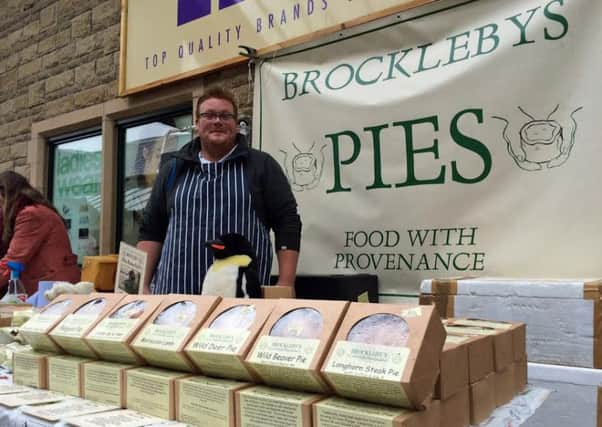Andrew Vine: A small price to pay to secure farming's future


A few pence on the price of a pint of milk. A sum of money the majority of us wouldn’t notice losing if it slipped through a hole in our pocket.
But quite possibly the difference between a livelihood and ruin for the farmers we trust to feed us safely and care for the countryside we love.
Advertisement
Hide AdAdvertisement
Hide AdThat is the stark message being taken to the doorstep of 10 Downing Street tomorrow, and it should also be pondered by all of us who shop in supermarkets.
Farmers for Action will bring one of the greatest threats facing much of the countryside to the heart of the capital, when the organisation stages a rally in Trafalgar Square before marching down Whitehall to raise awareness for its campaign for fair prices.
And if a mass delegation from the countryside seems novel to the resolutely urban commuters and shoppers who watch them pass by, the people of London should think again because the two sides are closer than they realise.
They are brought together by the food on their tables, and the milk that goes into their coffee or over their breakfast cereal.
Advertisement
Hide AdAdvertisement
Hide AdIt is a link taken for granted, and this lack of awareness plays its part in threatening the survival of the farmers who are stewards of the countryside.
Over the Easter weekend, millions will head out of the towns and cities into the countryside, to walk, cycle, picnic or just to breathe deeply of the clean air and enjoy the scenery.
But many will be blind to the threat to landscapes they love. They may be aware of the challenges posed by the need for new housing, or even fracking, but will not see the biggest risk to the countryside as we know it – that of farmers going bust.
Visitors who happily stump up money for admission to a stately home in a rolling landscape are unwittingly failing to pay enough to the men and women who farm the land.
Advertisement
Hide AdAdvertisement
Hide AdNo farmers, no well-managed countryside. It’s as simple as that, and the Farmers for Action rally deserves the widest possible support from the urban population as well as the rural.
As such, we all have our part to play in ensuring that agriculture not only survives, but thrives. Unless we do, the outlook for a lot of farmers is grim.
The figures for too many of them simply do not add up, thanks to the stranglehold that the major supermarket chains have over food supply.
No business can survive if the cost of producing something exceeds what it is paid for it, and yet that is the position that farmers find themselves in.
Advertisement
Hide AdAdvertisement
Hide AdHeavily-discounted milk that shoppers put into their trolleys threatens bankruptcy for the dairy farmers who produce it, yet if it cost just a few pence more and retailers passed that on, their businesses stand a much better chance.
That farmers find themselves in such a plight is an indictment of the supermarkets’ economic muscle – even though some pay fair prices – but a lack of consumer awareness has also played its part.
Visitors to the countryside can often overlook entirely the hard graft and long hours that go into the landscapes they admire, and fail to make the connection between the animals or crops in the fields and the food they buy.
The erosion of the link between town and country has allowed retailers to put farmers under an unfair degree of pressure, and it is time that consumers woke up and voted with their feet.
Advertisement
Hide AdAdvertisement
Hide AdThe growth in the artisan food sector – particularly strong in Yorkshire – demonstrates that shoppers like to feel a connection to the people providing what they eat. The thousands of people with no direct connection to farming who will attend this summer’s agricultural shows across Yorkshire also shows the respect and affection in which those who work the countryside are held.
It is not a long stride from there for supermarket shoppers to ask their favoured retailer about fair pricing for farmers. The big chains are acutely aware of consumer trends and concerns.
If shoppers can be woken up to the fact that a few coppers extra on their bill at the checkout will make the difference between a livelihood and bankruptcy, they are likely to be willing to pay.
It is the smallest of prices to pay to ensure that farmers survive. They deserve no less, and their voices should be heeded tomorrow.